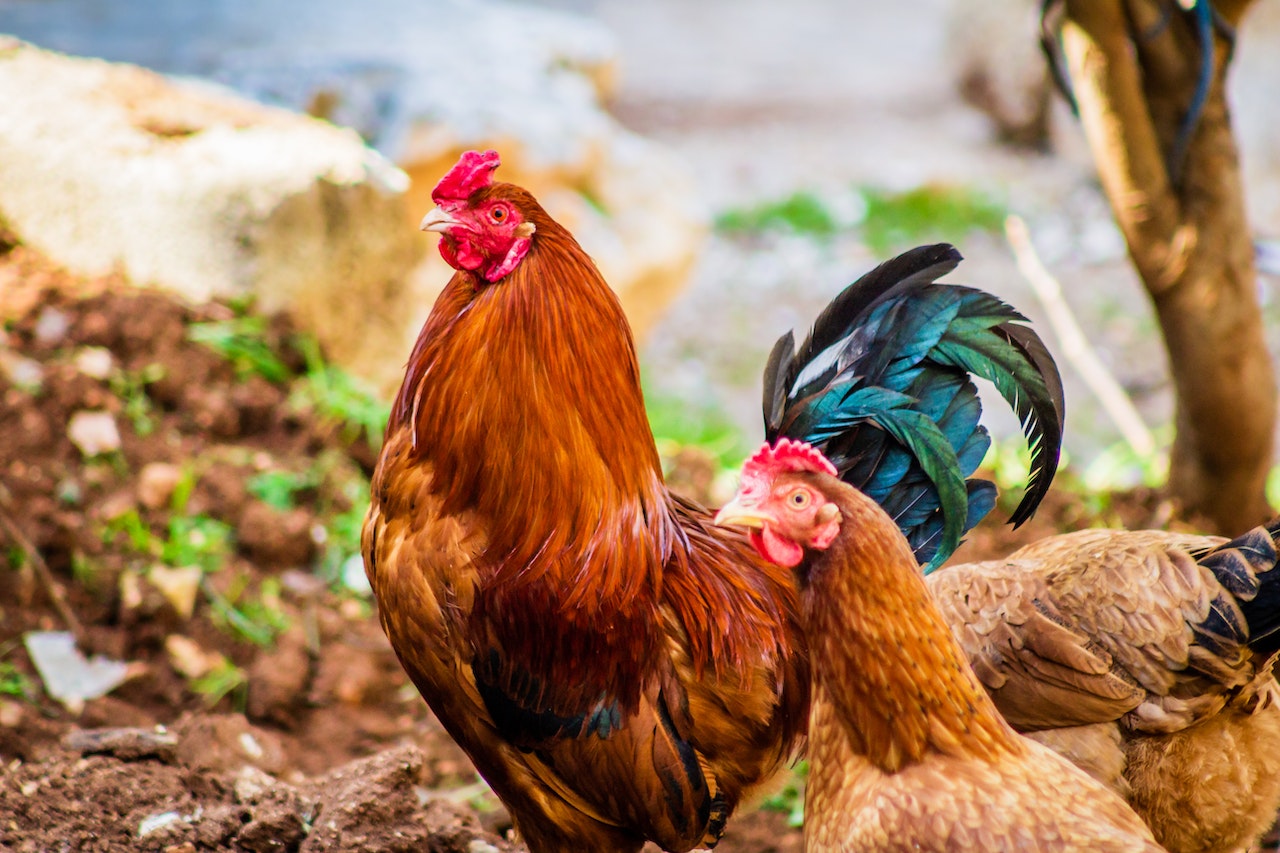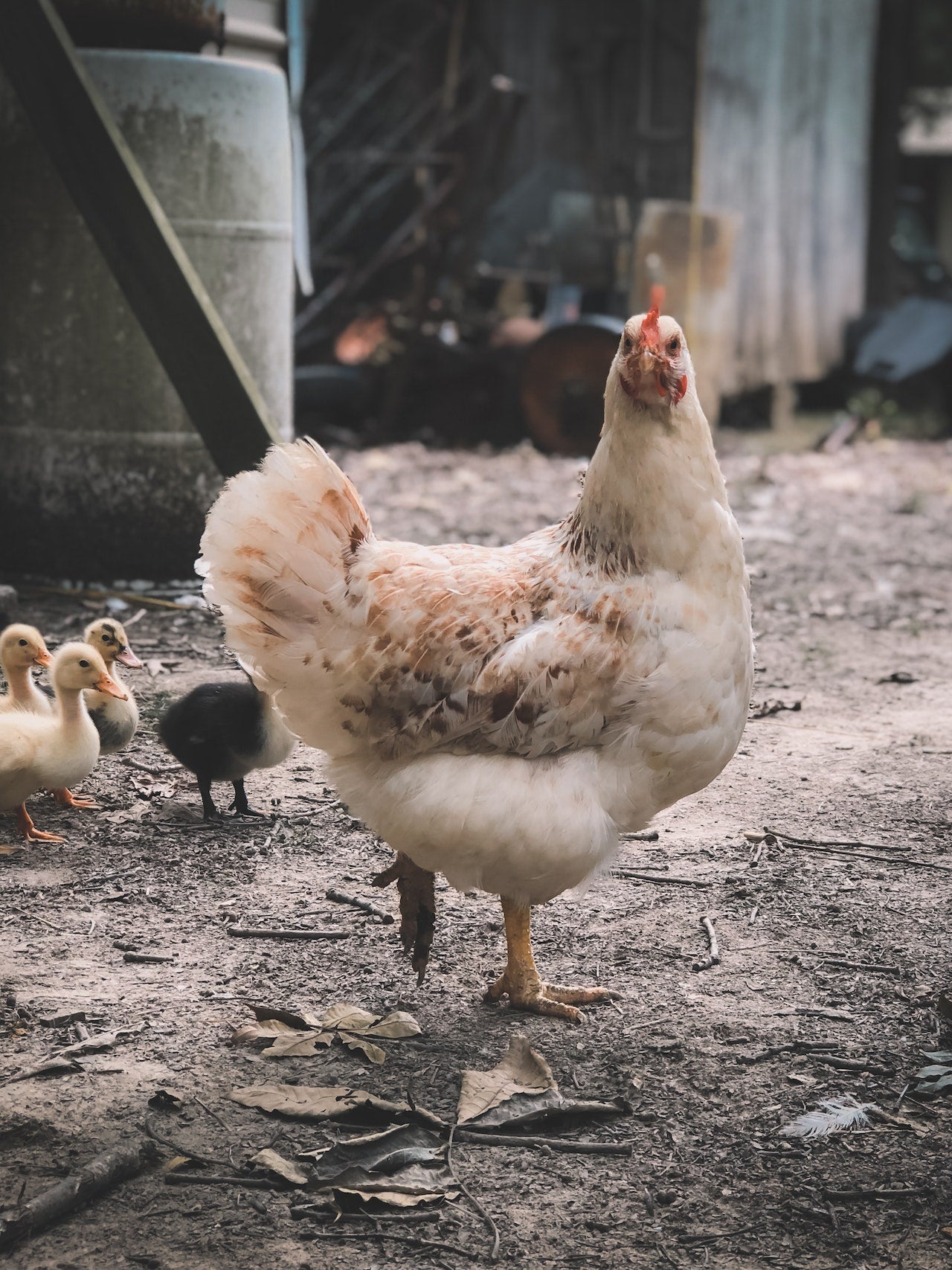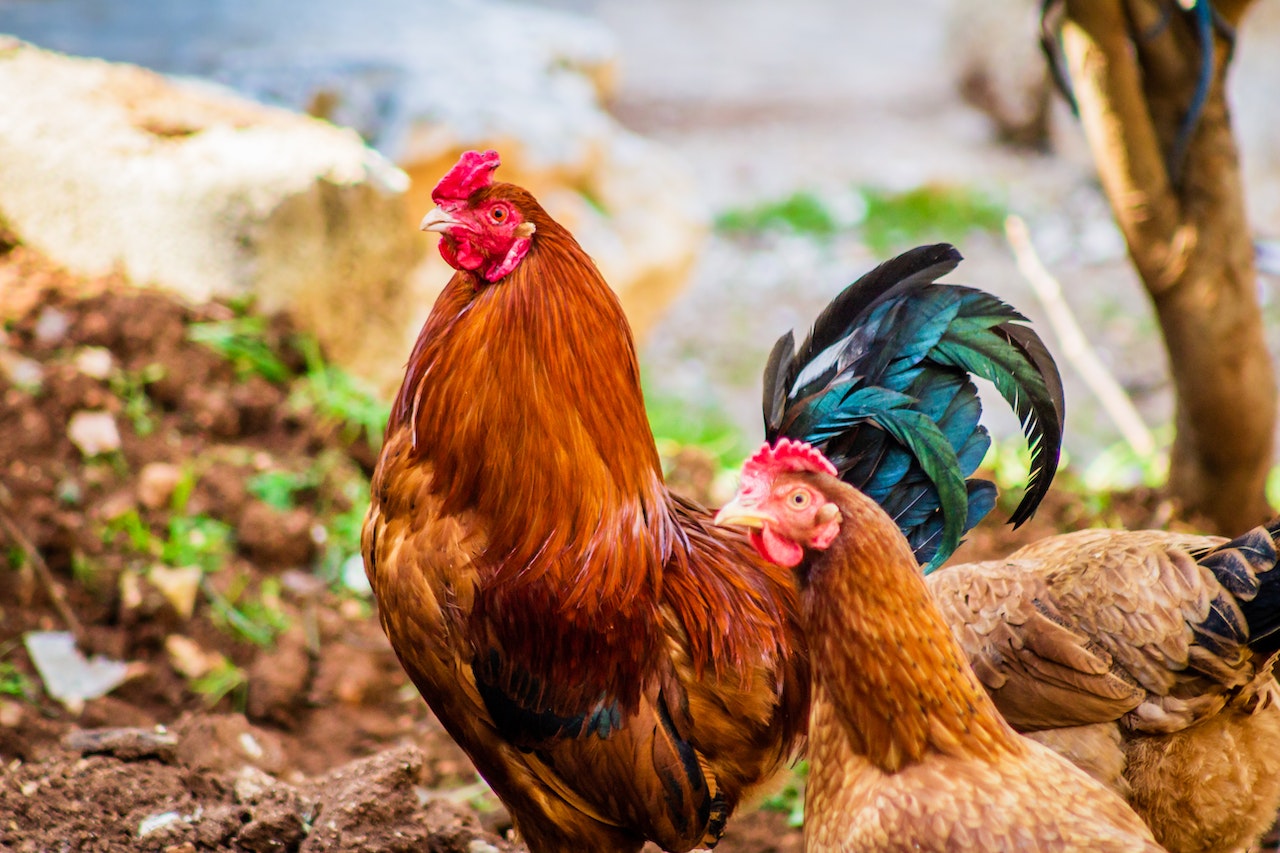Can Chickens Eat Mint
A chicken's diet would benefit greatly after including herbs because of herbs has amazing health advantages. Not all herbs, though, are suitable for hens. Since mint is one of the most well-known and simple-to-grow plants, you might be curious if chickens can eat it.
Can Chickens Eat Mint?
Yes, chickens can eat mint, including the stems and leaves, but there are a few concerns you should be aware of before giving mint to your flock. Discover the benefits and drawbacks of giving mint to hens by reading on.
Health Benefits of Mint
Mint is one of the most adaptable and healthy herbs to cultivate in herb gardens.
Mint leaves can be eaten fresh or dried, steeped in hot water to make mint tea, or used in infusions to cure nausea, bronchitis, stomach ulcers, upset tummies, and even to ward off insects.
Among many other uses, the leaves can be crushed and applied to the skin to lessen the pain and swelling from insect bites.
It facilitates digestion and even lessens bad breath. Mint has antimicrobial properties as well, so it may be useful for ailments brought on by infections.
Many essential oils found in the plant's leaves provide a variety of advantages for both people and animals. The potential to help with digestive issues such as bloating, stomach cramps, nausea, and flatulence is its most well-known advantage (passing gas).
Mint's antibacterial properties also aid to lessen infections in the mouth, nose, and throat mucous membranes, which can be beneficial when treating colds or sore throats.
Anxiety, insomnia, tired muscles, and skin irritations like swelling from cuts or bug bites have all been known to be helped by the mint.
Moreover, mint is a potent antioxidant that can combat free radicals, which may delay the aging process. This makes it advantageous for people who smoke or live an unhealthy lifestyle. One of the finest methods to regularly enjoy these advantages is to make mint tea by steeping the leaves in hot water.
Why Mint is Good for Chickens
- It aids digestion.
Chickens need assistance with digestion because they are natural foragers and will eat nearly everything. Digestive problems like gas, bloating, and indigestion are relieved by peppermint. According to animal research, mint helps to relieve intestinal spasms and pain by relaxing the muscles in the stomach.
- It helps ease respiratory problems.
Menthol, a chemical found in mint, helps us breathe more easily when we have sniffles. Yet, did you know that it also helps poultry breathe more easily? Because birds are prone to a variety of respiratory problems, using mint as a preventative measure can help them manage cold symptoms including decongestion.
- It contains anti-inflammatory and antibacterial effects.
Due to their propensity for exploration, chickens are prone to ingesting bacteria from the soil or other sources. They can avoid infection-causing harmful microorganisms by including mint in their diet.
Affected or inflamed areas can benefit from increased blood flow thanks to mint, particularly peppermint. It has analgesic properties that might lessen discomfort.
- It improves blood circulation.
Iron and manganese, two minerals that might raise haemoglobin levels, are found in mint. It encourages healthy blood flow and ideal organ performance.
- It strengthens the immune system.
Stress is experienced by chickens, especially hens, as a result of aggressive roosters or threats from predators. Stress can be reduced by the calming and relaxing qualities of mint's fragrance.
Also rich in vitamins and antioxidants that can strengthen hens' immune systems is mint.
- It helps to cool you off on hot days.
Contrary to popular opinion, mint doesn't make you feel colder. Yet menthol activates the part of the brain that conveys the chilling feeling.
During the summer, some home farmers enjoy adding mint stems and leaves to the ice water they give their flock. When it gets too hot, it releases a cooling aroma that might cool down your hens.
- It serves as protection from parasites.
A well-known natural insect repellant is mint. Some farmers stuff nest boxes with mint leaves. Little chicks receive a layer of defense against fleas and mites as they rub their bodies against the leaves.
Can Chickens Eat Mint Leaves?
Yes. Fresh mint leaves are delicious for chickens to eat, and if you have a plentiful supply of the plant in your garden, they will have access to it.
If you want to provide your birds with a varied diet and some extras for yourself, you may also grow various types of mint plants. For various flavours, try planting spearmint, apple mint, or even chocolate mint.
Can Chickens Eat The Stems Of Mint?
Yes. If the plant's stems haven't been sprayed with pesticides or other substances that could hurt your chickens, they are okay for chickens to eat.
Make careful to thoroughly wash the mint before giving any of it to your chickens if you're growing it in a pot inside over the winter.
Can Chickens Eat Mint Flowers?
Yes. The plant's unopened blossoms, which are commonly referred to as "buds" when they are still closed up, are delicious to chickens. Some of them can be let to bloom into attractive small white or pink flowers, which will look lovely in your chicken run and draw bees and butterflies to your yard.
Is Mint Root Edible To Chickens?
The plant's roots are often not consumed by chickens, but they will eat them if they are mixed in with their regular diet.
But, you might want to think about utilizing some other stomach distress treatments instead. Also, to make sure it's secure for your hens to eat, you'll need to break it up.
How Much Mint Can Chickens Eat?
The amount of mint that hens can consume is not regulated. But, no food—including mint—should ever account for more than 5–10% of your hens' daily caloric intake. Mint should only be used as a treat and not as a substitute for the animal's regular food. If you feed mint to chickens, it should be a portion of a balanced diet.
How Can Chickens Be Fed Mint?
How to feed mint to chickens is provided below;
If at all feasible, try to find organic mint.
To get rid of any possible pesticides on the mint's skin, wash it.
Combine the mint with some regular chicken food.
The first time you give mint to your chicken, start slowly to see if they exhibit any unfavourable behaviours. Doing this with any novel snack is a good idea.
Last Words
Chickens can for sure eat mint. Mint is not only safe for chickens, but it also has a lot of health advantages and is reasonably priced. Try planting some of these herbs around your coop or chicken run today if you want to keep pests away from your flock naturally.


